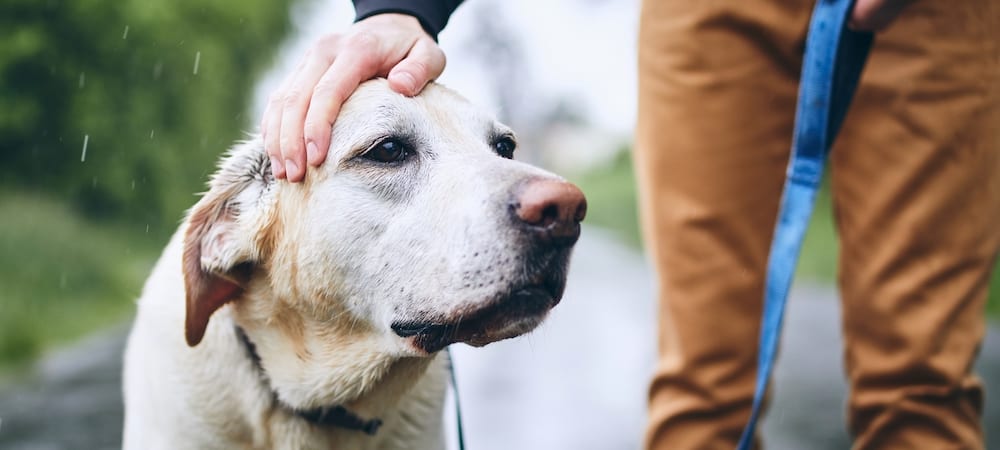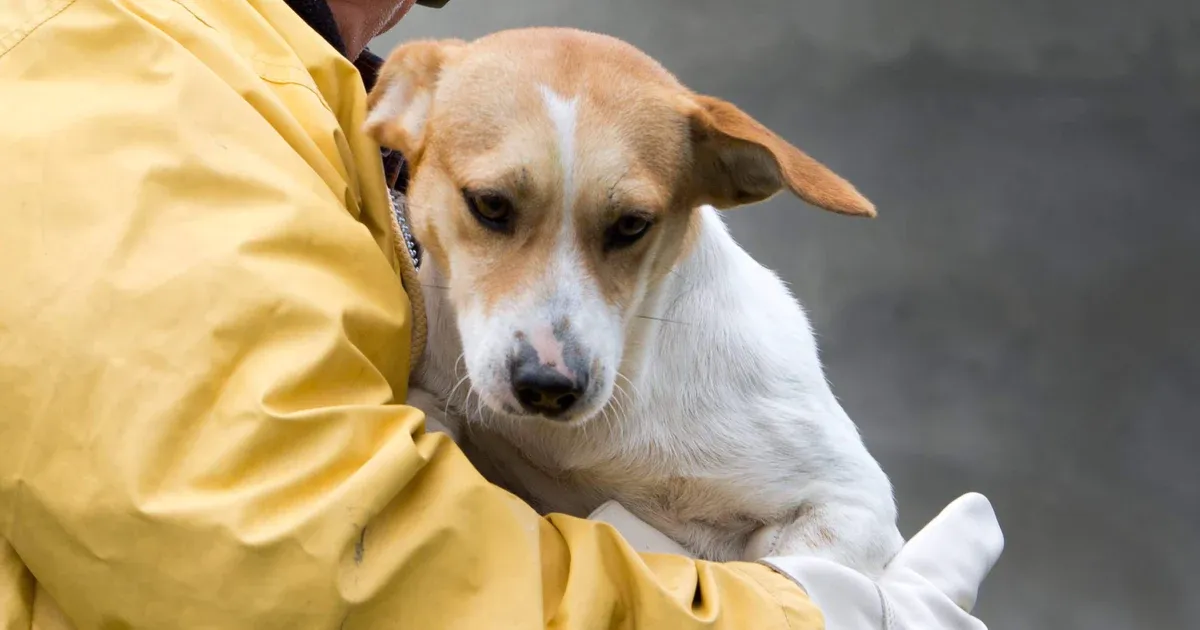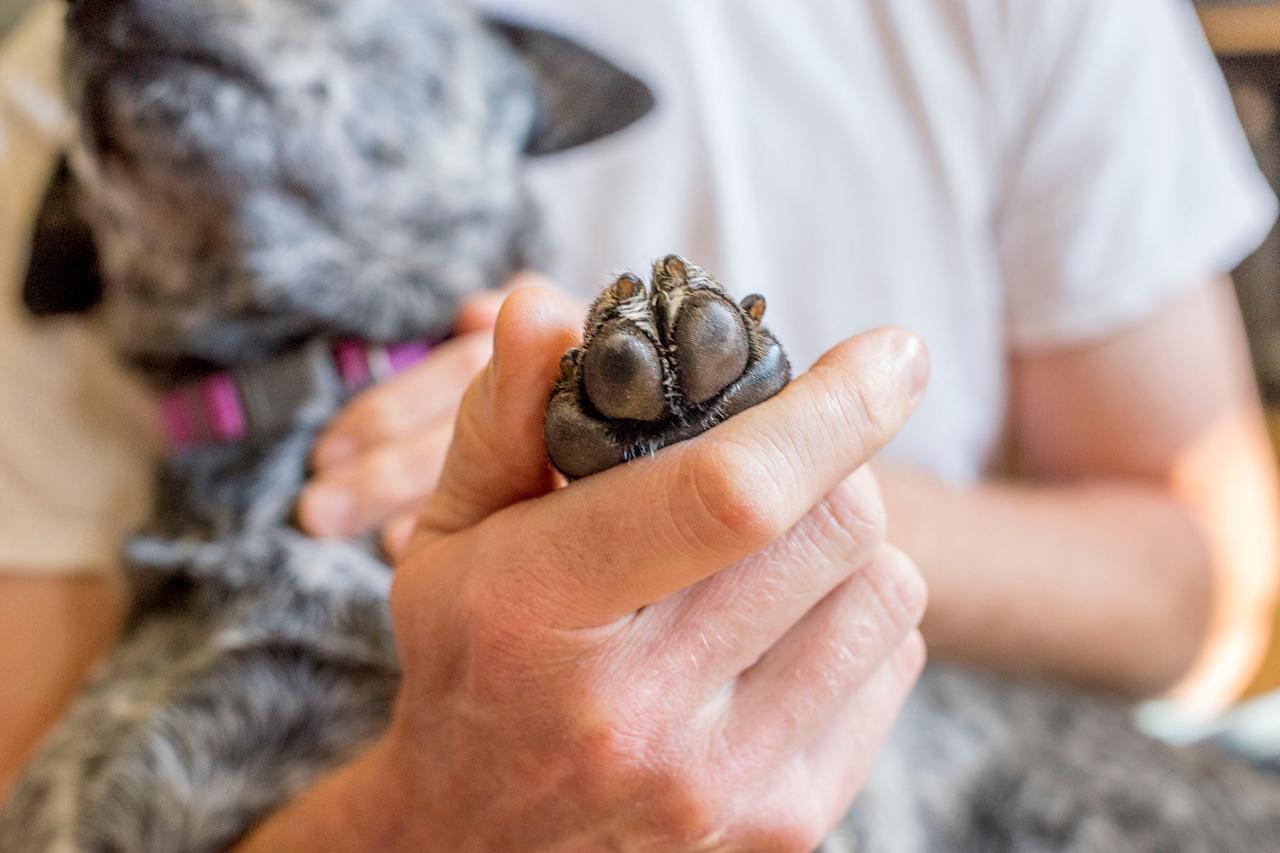As hurricane season approaches, it's important to remember that our furry friends need to be included in our emergency preparations. While many of us are familiar with the basics of hurricane preparedness for ourselves and our families, it's easy to forget about our pets. Dogs, in particular, can be especially vulnerable during a hurricane. In this article, we'll provide some essential tips to help you keep your dog safe and comfortable during a hurricane.

Understanding Hurricanes and Their Impact on Dogs Before diving into the specifics of hurricane preparedness for dogs, it's important to understand the nature of hurricanes and how they can affect our pets. Hurricanes are powerful storms that can cause significant damage to homes, buildings, and infrastructure. They can also be extremely dangerous for animals, who may become disoriented or frightened by the high winds, heavy rain, and other environmental factors. Dogs may also be at risk of injury or illness during a hurricane, especially if they are left outside or exposed to the elements for an extended period of time.
Key Takeaways
- Hurricanes can be extremely dangerous for dogs, who may become disoriented or frightened by the high winds, heavy rain, and other environmental factors.
- It's important to include your dog in your emergency preparations and have a plan in place for their care during a hurricane.
- During a hurricane, it's important to keep your dog indoors and away from windows, and to have plenty of food, water, and medication on hand.

Understanding Hurricanes
Hurricane Basics
Hurricanes are massive storms that form over warm ocean waters and can cause significant damage when they make landfall. They are characterized by strong winds, heavy rain, storm surges, and flooding. Hurricanes are classified into five categories based on their wind speed, with category 5 being the strongest.
Hurricane Season and Predictions
Hurricane season in the Atlantic typically runs from June 1st to November 30th, with the peak occurring between August and October. The National Oceanic and Atmospheric Administration (NOAA) issues annual predictions for hurricane activity, which can help people prepare for potential storms.
The Impact of Hurricanes on Dogs
Hurricanes can be just as dangerous for dogs as they are for humans. Dogs can become stressed and anxious during a storm, and may even become lost or injured if they are not properly secured. It is important for dog owners to have a plan in place to keep their pets safe during a hurricane.
Some tips for keeping dogs safe during a hurricane include:
- Make sure dogs have proper identification, including a collar with tags and a microchip.
- Have a sturdy crate or carrier available for dogs to stay in during the storm.
- Stock up on food, water, and medications for dogs before the storm hits.
- Keep dogs indoors during the storm, and away from windows and doors.
- If evacuating, make sure to bring dogs with you and have a plan in place for where you will stay with your pets.
By understanding the basics of hurricanes and the potential impact they can have on dogs, owners can take steps to prepare and keep their pets safe during a storm.
Preparation for Dogs
Preparing for a hurricane is not just about humans, but also about pets. Dogs are especially vulnerable during a hurricane, and it is essential to plan ahead for their safety. Here are some tips for preparing your dog for a hurricane.

Creating a Pet Emergency Kit
Every pet owner should have a pet emergency kit ready in case of a natural disaster. The kit should include the following items:
- A week's worth of food and water
- Medications and medical records
- A leash and collar
- A crate or carrier
- Toys and treats
- A first aid kit
- Blankets and towels
Make sure to store the kit in a waterproof container and keep it in an easily accessible location.
Securing Food and Water Supplies
During a hurricane, it is crucial to have enough food and water for your dog. Make sure to stock up on canned food, dry food, and bottled water. It is also essential to have a way to store and transport the food and water, such as airtight containers and portable water bowls.
Updating Microchip and ID Tags
Make sure your dog's microchip and ID tags are up-to-date with your current contact information. This will help ensure that you can be reunited with your dog if you become separated during the hurricane.
Ensuring Vaccinations and Medical Records Are Up-to-Date
Before a hurricane hits, make sure your dog's vaccinations and medical records are up-to-date. This will help ensure that your dog is healthy and protected during and after the hurricane.
Designating a Caregiver and Evacuation Plan
If you are unable to care for your dog during a hurricane, it is essential to have a designated caregiver who can take care of your dog. Make sure to have an evacuation plan in place that includes your dog. Research pet-friendly shelters and hotels in your area and have a plan for transportation.
By following these tips, you can ensure that your dog is prepared and safe during a hurricane.
During a Hurricane
Safety Measures and Finding Shelter
During a hurricane, it is important to take the necessary precautions to ensure the safety of your dog. If you live in an area prone to hurricanes, it is recommended to have a plan in place in case of an emergency. This includes knowing where your nearest pet-friendly shelter or evacuation center is located. It is also important to have an emergency sticker or rescue alert sticker on your front door or window to notify rescue workers that there are pets inside the home.
If you are unable to evacuate with your dog, it is important to take shelter in a safe location. This may include an interior room, closet, or bathroom without windows. It is important to have enough supplies, including food, water, and medication, to last for several days.
Managing Stress and Anxiety in Dogs
Hurricanes can be stressful and anxiety-inducing for dogs. It is important to provide a safe and calm environment for your dog during the storm. This may include playing calming music, providing a comfortable bed, or using a calming pheromone spray.
It is also important to keep your dog's routine as normal as possible. This includes feeding and walking them at their regular times. This can help to reduce stress and anxiety in dogs during a hurricane.
Handling Evacuation Orders
If an evacuation order is issued, it is important to follow the instructions of local authorities. This may include evacuating to a pet-friendly shelter or evacuation center. It is important to have a plan in place for transporting your dog, including having a carrier or leash and ensuring they are up-to-date on their vaccinations.
If you are unable to evacuate with your dog, it is important to provide them with a safe and secure location in your home. This may include an interior room, closet, or bathroom without windows. It is important to leave enough food, water, and medication to last for several days.
By following these tips, you can help ensure the safety and well-being of your dog during a hurricane.
Emergency Response
In the event of a hurricane, it is important to have a plan in place for your furry friend. This includes having a first aid kit on hand, knowing what to do if separated from your dog, and seeking medical attention if necessary.
First Aid for Injured Dogs
If your dog is injured during a hurricane, it is important to provide first aid as soon as possible. This may include cleaning and bandaging wounds, applying pressure to stop bleeding, and administering any necessary medication.
It is recommended that you have a first-aid kit specifically for your dog, which should include items such as gauze, bandages, antiseptic wipes, and any medication your dog may need.
If your dog is seriously injured, it is important to seek medical attention from a veterinarian as soon as possible.
What to Do If Separated from Your Dog
In the chaos of a hurricane, it is possible to become separated from your dog. To increase the chances of being reunited, make sure your dog is wearing identification tags and has a microchip.
If you become separated from your dog, check with local animal shelters and veterinary clinics to see if your dog has been found. You can also post on social media and community forums to spread the word.
It is important to remain calm and patient during the search for your dog. With the right precautions and response, you can help ensure the safety and well-being of your furry friend during a hurricane.
Post-Hurricane Recovery
After a hurricane, it is important to take the necessary steps to ensure that your dog is safe and healthy. The following subsections will provide some tips for assessing your dog's health, re-establishing routine, and considering repair and rebuild options.

Assessing Your Dog's Health
It is important to assess your dog's health after a hurricane. If your dog was injured during the storm, seek medical attention from a veterinarian as soon as possible. If your dog is on medication, make sure you have enough to last for several weeks. If you run out of medication, contact your veterinarian for a refill.
Additionally, be aware of any signs of stress or anxiety in your dog. Some dogs may become anxious or fearful after a hurricane, and it is important to provide them with a calm and safe environment. If your dog is displaying signs of stress or anxiety, contact your veterinarian for advice on how to help your dog cope.
Re-establishing Routine
After a hurricane, it is important to re-establish a routine for your dog as soon as possible. Dogs thrive on routine, and it can help them feel more secure and comfortable. Make sure your dog has access to food, water, and a comfortable place to rest. Take your dog for walks and provide plenty of opportunities for exercise and play.
If your dog is used to a specific routine, try to maintain that routine as much as possible. This can help your dog feel more comfortable and secure in the aftermath of a hurricane.
Repair and Rebuild Considerations
If your home was damaged during a hurricane, it is important to consider the safety of your dog during the repair and rebuild process. Make sure your dog is kept away from any construction areas, and provide a safe and secure place for your dog to rest.
If your dog is anxious or fearful around construction noise, consider using white noise or calming music to help them feel more comfortable. Additionally, make sure any contractors or caregivers who are working in your home are aware of your dog's presence and take steps to ensure their safety.
Overall, it is important to take the necessary steps to ensure your dog's safety and well-being after a hurricane. By assessing your dog's health, re-establishing routine, and considering repair and rebuild options, you can help your dog feel more comfortable and secure in the aftermath of a disaster.

Additional Resources
National Weather Service and Ready.gov
The National Weather Service and Ready.gov are two reliable sources for up-to-date information on weather patterns and disaster preparedness. They offer a wealth of information on how to prepare for and respond to hurricanes, including tips for pet owners.
The National Weather Service provides detailed forecasts and warnings for hurricanes, as well as safety tips for before, during, and after the storm. Ready.gov offers a comprehensive guide to preparing for natural disasters, including information on creating an emergency kit and developing an evacuation plan.
Pet Disaster Relief Organizations
In addition to government resources, there are several pet disaster relief organizations that can provide assistance during and after a hurricane. The American Kennel Club's AKC Reunite program offers resources for pet owners, including a disaster preparedness guide and a database for lost and found pets.
Other organizations, such as Pet Disaster Relief and the Humane Society, offer emergency sheltering and rescue services for pets during natural disasters. It is important to research and identify these organizations in advance, so that you are prepared in case of an emergency.
Remember, preparation is key when it comes to keeping your pets safe during a hurricane. By utilizing these resources and taking necessary precautions, you can help ensure the safety and well-being of your furry friends.
Frequently Asked Questions
- How should I prepare my dog for an upcoming hurricane?
- Preparing your dog for a hurricane involves taking several steps to ensure their safety. First, make sure your dog is up-to-date on all their vaccinations and has identification tags with updated contact information. Additionally, have a plan in place for where your dog will stay during the hurricane and make sure to pack their emergency kit with food, water, and any necessary medications.
- What items are essential for a dog's hurricane emergency kit?
- A dog's hurricane emergency kit should include enough food and water for at least three days, a leash and collar with identification tags, a crate or carrier, any necessary medications, and a first aid kit. It's also a good idea to pack a favorite toy or blanket to help keep your dog calm during the storm.
- How can I ensure my dog's safety during a hurricane evacuation?
- During a hurricane evacuation, make sure to bring your dog's emergency kit and any necessary medications. Keep your dog on a leash or in a carrier at all times and make sure they have identification tags with updated contact information. Additionally, research pet-friendly evacuation shelters and hotels in advance.
- What are the signs of stress in dogs during severe weather events?
- Signs of stress in dogs during severe weather events can include trembling, panting, drooling, pacing, and whining. Some dogs may also become destructive or attempt to escape. It's important to monitor your dog's behavior and provide comfort and reassurance during these events.
- How can I calm my dog in the event of a hurricane?
- To calm your dog during a hurricane, provide a safe and comfortable space for them to rest, such as a crate or carrier. Play calming music or white noise to help drown out the sounds of the storm. Additionally, consider using calming aids such as pheromone sprays or supplements recommended by your veterinarian.
- What are the best practices for managing pet relief areas during a hurricane?
- When managing pet relief areas during a hurricane, it's important to prioritize safety and sanitation. Keep the area clean and free of debris, and make sure to dispose of waste properly. Additionally, provide plenty of fresh water and shade for your dog to rest in.






